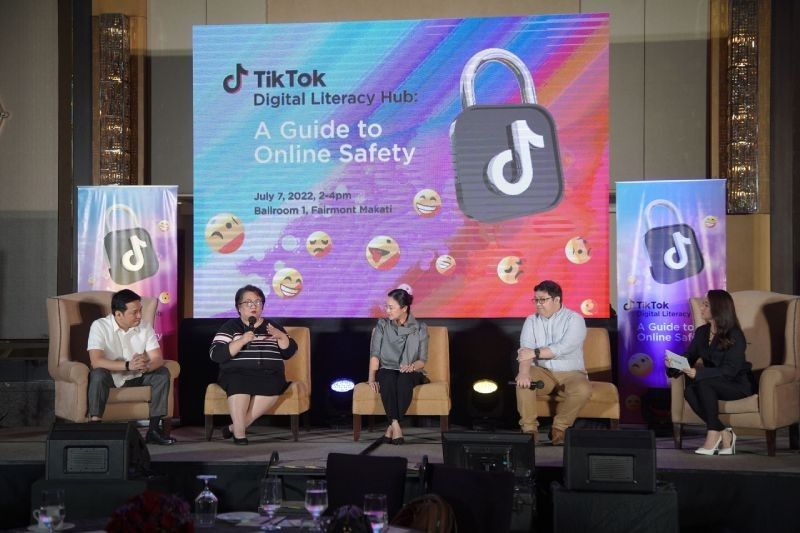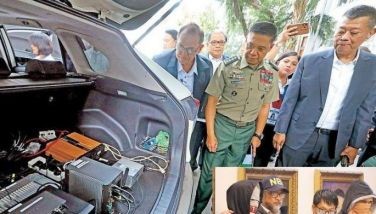Video disinformation, laws on social media among digital threats in SEA — report

MANILA, Philippines — False information to influence public opinion and elections, and the risk of governments trying to restrict social media are among the issues in the digital space that the Philippines and the rest of Southeast Asia face, digital rights and internet freedom organization DigitalReach said Friday.
In its Digital Rights in Southeast Asia 2023 report, DigitalReach highlighted how short videos, particularly on TikTok, influenced elections in the Philippines and in Malaysia in 2022.
The organization said short videos, which are harder to fact check because of the need to understand local context and non-verbal cues, "[were] used to spread right-wing narratives that favor views of Muslim conservatives" in Malaysia, and used to gloss over the Martial Law period and attack political rivals in the Philippines.
"In future elections in Southeast Asia, it is highly likely that information disorders via video format will play a significant role similar to that witnessed in the Philippines and Malaysia," it said.
The group noted that TikTok had committed to curb disinformation on its platform through AI and by partnering with the Commission on Elections in the Philippines and with news agency AFP across the region.
RELATED: TikTok defends platform amid concerns over political disinformation
"When the information is confirmed to be false or misleading, TikTok states that it would take proactive steps to remove the content according to its Community Guidelines and notify the users accordingly. Additionally, the company has banned political ads globally since 2019," it also said, noting however that TikTok has still been criticized for not doing enough.
"Despite positioning itself as an entertainment platform,it is clear that the platform content extends well beyond the field of entertainment. It is this growth in dangerous content that poses a threat to human rights and democracy, and that requires the urgent action of the platform to manage the situation and to become more accountable," DigitalReach said.
The group also pointed out that governments in the region have been seen to use "cybertroops", or online campaigns, to influence public opinion on an issue.
READ: Internet access, privacy 'essential for freedom' — Proton chief
Restrictions on social media
DigitalReach also sounded the alarm on attempts by governments in Southeast Asia to restrict freedom of expression on social media through legislation.
It said that Indonesia, Thailand, Vietnam, Myanmar and Singapore have all come out with policies that would let the government have content taken down.
"Removing content without judicial or independent oversights would allow governments to independently decide which content can be removed," DigitalReach said.
"Given the history of human rights in Southeast Asia and that of previously adopted legislation, these laws in 2022 are likely to add weight to the existing legal weaponry used to crack down on freedom of expression," it also said.
Although the Philippines does not have a similar law yet, social media accounts of activists groups as well as their posts and the posts of supporters have been taken down, often without warning.
RELATED: CHR tells Facebook to review takedown of progressive groups’ pages
The National Telecommunications Commission last June also ordered internet service providers in the Philippines to block access to several sites over alleged ties to communist rebels. Among those websites, alternative news site Bulatlat.com, has questioned the NTC order in a Quezon City court. The petition against the order is still pending.
"How these laws will be enforced and what will happen when the newly adopted and existing laws that were adopted earlier work together, is still a question," DigitalReach said. "However, what is known is that these laws to tighten control of social media do not have, as their aim, greater social media accountability for human rights and democracy in the region."
Citizens in Southeast Asia are also at risk of surveillance, the group said, pointing to the discovery of the use of Pegasus spyware in Thailand. The spyware allows the collection of information of an infected device and to manipulate the device's microphone and camera remotely.
"This powerful tool is novel to political dissidents in the region who are the most at risk," DigitalReach said.
The group suggested localized approaches to digital security work, designating contact persons with whom targets of digital attacks and surveillance can share their experiences, setting up technical support facilities for activists and advocates, and increasing monitoring efforts against these threats. — Jonathan de Santos
- Latest
- Trending

































